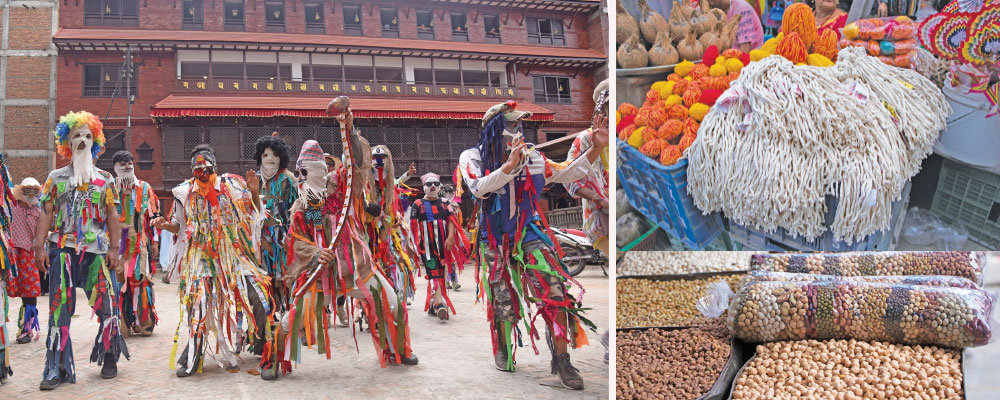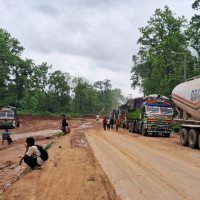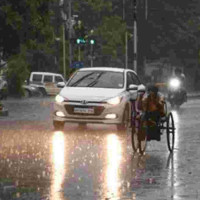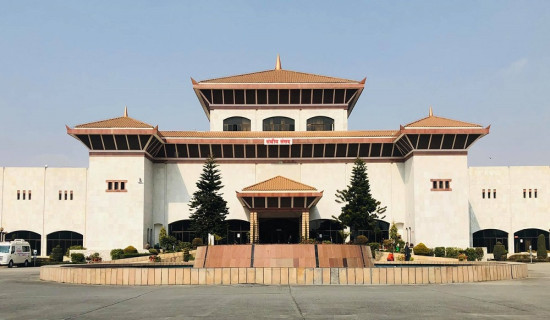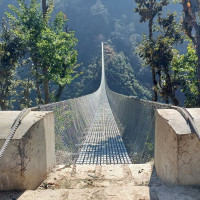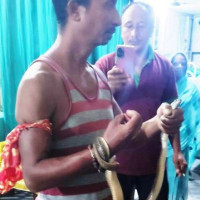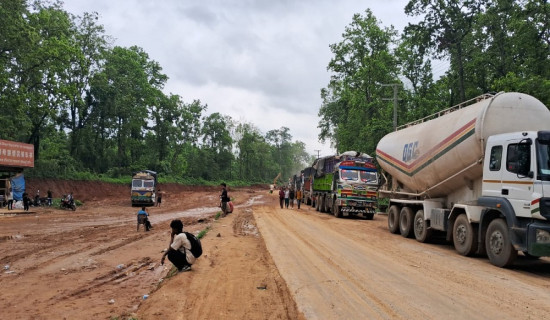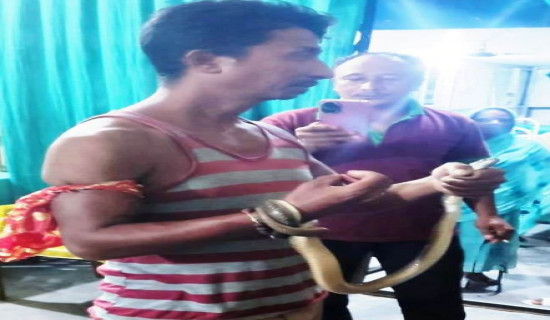- Monday, 23 June 2025
Janai Purnima, Gaijatra festivals today
By A Staff Reporter,Kathmandu, Aug. 31: Hindus are celebrating Janai Purnima (Rakshya Bandhan) on Thursday by offering prayers to Lord Shiva, changing Janai (sacred thread) and eating Kwanti, a soup prepared from nine different beans.
The Newar community of the valley and across the nation are also celebrating the festival of Saparu (Gaijatra) commemorating their relatives who passed away during the year.
On the occasion, which is also a full-moon day, pious Hindus take a bath in the holy rivers and ponds and the men change their Janai (sacred thread) which they wear around their bodies.
The people also get yellow-red threads tied around their wrists from the Brahmins as protective gear for the whole year.
The festival is considered sacred all over the nation and beyond and is observed in different manners by different communities.
The tagadharis, or those wearing the Janai, change the sacred thread after having a haircut and a bath.
The festival, also called Rishi Tarpani, is popularly known as Gunhu Punhi in the Newar community.
Kwanti is a special delicacy added to the Nepali menu on the occasion of Janai Purnima. The soup is highly nutritious and keeps diseases at bay. In the Newar community, there is a tradition of offering soup to frogs.
On this day, the people of Kathmandu Valley visit the five-storey Kumbeswor Temple in Patan and pay their respect to the Kumbeswor, Lord Shiva.
Similarly, the Newar community of the Kathmandu Valley and across the nation celebrate the festival of Gaijatra.
The festival of Gaijatra is one of the most popular festivals of the nation. During the festival, cows are marched in the streets. Every Newari community celebrates the festival in Bhaktapur, Patan, Kathmandu and other places.
The occasion is filled with songs and jokes. Mockery and humour of every kind become the order of the day until late evening.
Meanwhile, Nepal's LGBTQ+ community (lesbian, gay, bisexual, transgender, queer or questioning persons or the community) joins the celebration.
Since 2004, the LGBTQ+ community has made it their own, calling it the 'Pride Parade' or 'Gourav Yatra'.
Speaking at an interactive programme on the ‘role of media in the rights of gender and gender minority communities and information on Gaijatra festival’ on Wednesday, Bhumika Shrestha, a transgender human rights activist, said that in a society where traditional gender roles are deeply rooted, this festival offers the LGBTQ+ community a chance to express their identities openly.
The Gaurav Yatra, a highlight of the festival, features creative performances and symbolic lamp lighting, all advocating for unity and human rights, she said.
“Campaigners and media play a vital role in spotlighting these efforts. The Federation of Sexual and Gender Minorities Nepal urges the media to share stories of challenges and successes, advancing the cause of LGBTQ+ rights,” she said. As Nepal's streets come alive with the Gaijatra festival, they also shine with the spirit of inclusivity and acceptance, she added.

